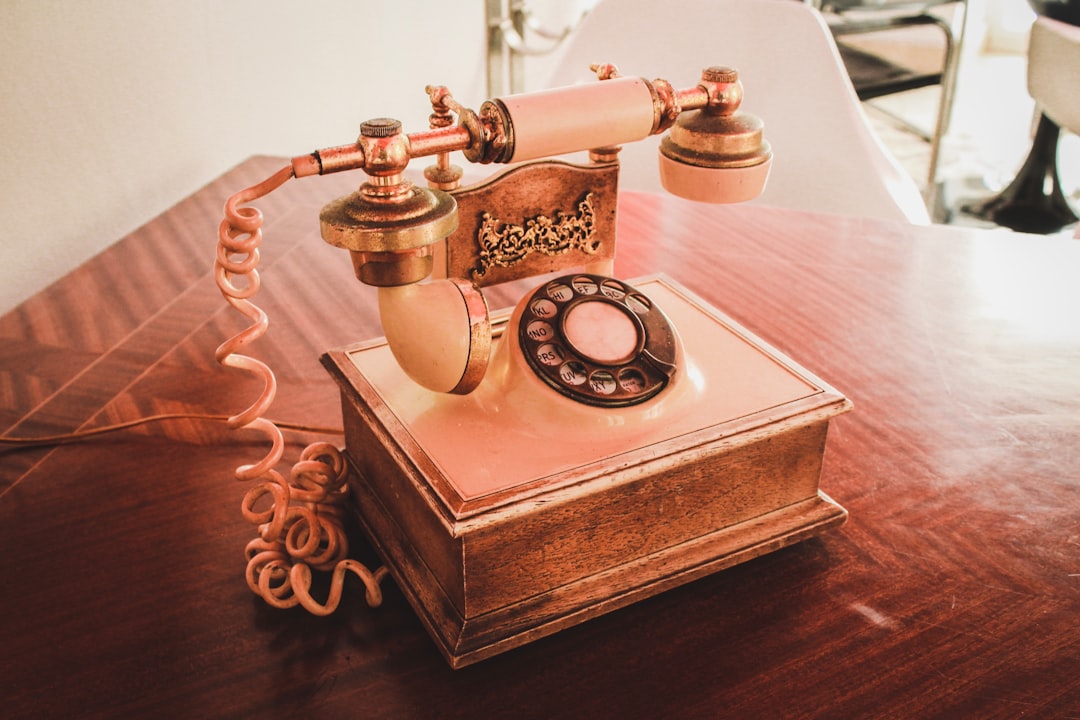In Mississippi, Do Not Call laws protect residents from unwanted sales calls and telemarketing. If your number is on the National Registry, it's illegal for lawyers or firms to contact you directly without exceptions. Consumers can file complaints with penalties. Keeping detailed records of incoming calls—including date, time, caller behavior, and messages—is crucial for compliance, avoiding legal issues under the TCPA, and honoring client preferences. Accurate record-keeping aids in cross-referencing against call lists, optimizing communication strategies, and strengthening relationships within the Mississippi legal community.
In the digital age, unwanted phone calls remain a persistent issue. For businesses in Mississippi, navigating the state’s Do Not Call laws is essential to protect consumers and maintain legal compliance. Effective record keeping plays a pivotal role in achieving this balance. This guide explores the significance of documenting unwanted calls, from understanding Mississippi’s regulations to implementing best practices, helping do not call lawyers and attorneys ensure their clients’ rights while fostering a respectful business environment.
Understanding the Do Not Call Laws in Mississippi

In Mississippi, the Do Not Call laws are designed to protect residents from unsolicited sales calls and telemarketing messages. These laws are enforced by the Mississippi Attorney General’s Office, which serves as a resource for consumers seeking relief from persistent or harassing calls. If you have registered your number on the national Do Not Call Registry, it is illegal for any do not call lawyer Mississippi, do not call attorney Mississippi, or do not call law firm Mississippi to contact you directly, except under specific circumstances such as a pre-existing business relationship or with your prior written consent.
Consumers can file complaints against violators with the Attorney General’s Office, which may lead to penalties for the offending do not call lawyers Mississippi or do not call attorneys Mississippi. Having a lawyer for Do not call Mississippi on your side can help you navigate these regulations and ensure that your rights are respected. By keeping detailed records of unwanted calls, including dates, times, callers’ information, and any relevant communications, you can build a strong case against violators and effectively assert your do-not-call status.
The Role of Records Keeping in Preventing Unwanted Calls

Keeping records is an essential aspect of preventing unwanted calls and ensuring compliance with regulations, particularly when it comes to do-not-call lists in Mississippi. By meticulously documenting every incoming call, businesses, especially law firms, can effectively manage their communications and avoid potentially costly legal issues. When a client registers for the National Do Not Call Registry or specifies their preference not to be contacted by a particular lawyer or law firm in Mississippi, maintaining accurate records is crucial.
These records serve as a reliable reference point, allowing lawyers and attorneys to cross-reference against their call lists. It enables them to quickly identify and honor client requests, ensuring compliance with the Telephone Consumer Protection Act (TCPA). Proper record-keeping also facilitates the tracking of effective communication strategies, helping law firms optimize their outreach methods and minimize unwanted calls, thereby fostering better client relationships and a positive reputation in the legal community of Mississippi.
Best Practices for Maintaining Accurate Records

Maintaining accurate records is paramount when dealing with unwanted calls, especially when considering legal action against a do not call law firm in Mississippi. Start by documenting each incident, including the date, time, and source of the call. Write down any specific details about the caller’s behavior or the content of their message, as these can be crucial for identifying patterns and verifying claims later.
Organize your records digitally using cloud-based systems or spreadsheets to ensure easy retrieval. Categorize them by case number, if applicable, and date. Additionally, keep all relevant correspondence, such as emails or letters from potential do not call lawyers in Mississippi, to provide a comprehensive legal trail. Regularly review and update these records, as they can be invaluable resources for supporting your case should you decide to involve a lawyer for do not call Mississippi services.
Common Mistakes to Avoid When Documenting Unwanted Calls

When documenting unwanted calls, individuals often make mistakes that can weaken their case or lead to misunderstandings. A common error is failing to record crucial details such as the caller’s name, phone number, date, and time of the call. This information is essential for identifying the source of the unwanted contact and potentially pursuing legal action against the repeat offender, especially when dealing with aggressive or persistent callers.
Another mistake is not keeping a log of all interactions, including any threats, promises made during the calls, or unique patterns in the caller’s behavior. In the case of potential legal recourse, having a comprehensive record can help demonstrate a pattern of harassment. It’s crucial to remember that documenting these calls should be done discreetly and legally, without violating any privacy laws. Therefore, individuals in Mississippi facing unwanted calls from lawyers or law firms (Do not call lawyer Mississippi, Do not call attorney Mississippi, etc.) must take care to accurately record and preserve evidence while seeking appropriate assistance from a qualified lawyer for Do not call Mississippi.
Enhancing Compliance and Protecting Your Business with Effective Record Keeping

Effective record keeping is a powerful tool for enhancing compliance and protecting your business when dealing with unwanted calls, especially in Mississippi where laws regarding the “Do Not Call” list are stringent. By meticulously documenting each call, including details like caller information, dates, and the nature of contact, businesses can stay compliant with state regulations. This practice not only ensures that you respect consumer choices but also serves as a robust defense mechanism against potential legal issues.
For instance, if a customer files a complaint alleging unwanted calls from your firm, having comprehensive records allowing you to demonstrate compliance with “Do Not Call” laws can be invaluable. These records can provide irrefutable proof of your efforts to honor consumer preferences and prevent harassing calls, thereby safeguarding your business’s reputation and interests. Moreover, effective record keeping enables efficient tracking of call trends, helping you identify sources of unwanted calls and take proactive measures to curb them.






